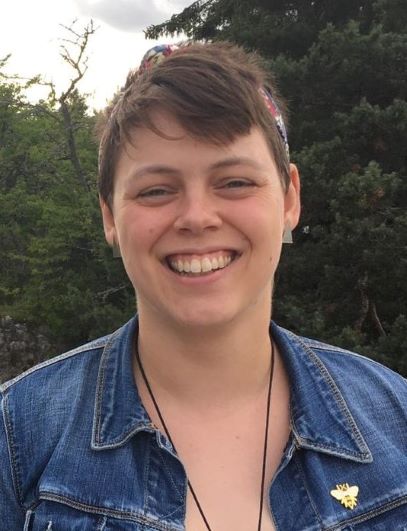Sophie Bridger ponders on whether lessons about community connection learnt in the pandemic can help us respond to the climate crisis?
The last two years have taught us a lot about the power of community connection and action. Before the pandemic, many people saw community (whether that's the community where you live, or communities of identity) as something woolly, something that was nice to be part of if you had time. Living through a pandemic has showed us how essential belonging to a community is for our collective and individual wellbeing, particularly in times of crisis.
We're barely out of lockdown, but the reality of the climate crisis is already hitting us. For those who had not already acknowledged the blaring siren of extreme weather, crop failures and species extinction, COP26 has brought the urgency of the situation home. Problems like these are so huge and global in nature, and the threat so severe, that they can feel overwhelming and beyond our control. If we face these problems as individuals, we will crumble under the challenge and the stress. But as communities, as groups taking action together, we might stand a chance.
Many communities are promoting pro environmental behaviours and cultural shifts in their communities, such as the Zero Waste Pantry in Greenock, which is tackling food waste. Others are using their collective voices to push for real commitments from our governments - groups like the ones involved in Scottish Communities Climate Action Network. It's worth saying that indigenous communities and communities in the Global South have taken action to protect the land they live on and the natural resources we all need long before it was celebrated, and continue to do so at great personal risk.
None of these actions are possible without a strong sense of community and connection. Until we connect with others, we are lone voices shouting in the wind. Until we find others in our communities, we cannot find each other, find a goal and make a difference
It's important to acknowledge that communities have limited opportunity to reduce climate change by themselves. Corporations have to take their share of responsibility, and our governments need to step up - the onus for significant change rests on them. But communities and groups can shift our understanding of what is possible, identifying how we can live in a way that connects more to nature, and how we can collectively shift our expectations and behaviour. Much is beyond our control - but it is empowering to grasp the things that are. Environmental community action, whether you're composting or protesting, is a practical, optimistic act that searches for a better way to live.
Eco-anxiety (the stress of living with the threat of real, impending climate change) is a growing and damaging phenomenon for many people. Others are already living with the distressing reality of the climate crisis. Again, our communities matter here. Supportive community networks help us to deal with stressful situations, as we lean on each other through the hard times. Research done by Prior and Erikson (2013) into communities in Australia affected by bushfires showed that being able to rely on your neighbours and a wider community support network helps alleviate anxiety, and makes us feel more able to deal with crises as individuals.
We also need to acknowledge that calling for action on climate change is now about limiting it, not stopping it, and our communities will need to be prepared to respond. With increases in extreme weather, flooding is likely to become a significant issue, particularly for coastal communities. Prior and Erikson’s research highlights that communities with good social networks show real practical resilience in the face of crisis. These networks allow us to communicate quickly, to share our knowledge, resources and plans with others during extreme weather events, so the whole community benefits. Connected communities support each other practically.
Communities alone cannot stop climate change. But communities that are connected and cohesive are more resilient and better able to respond to crises, and as individuals we cope better in a crisis when we're supported by the community around us. We also know that connection to each other, and to our planet, is an essential prerequisite for people to come together and ask our governments to do more. That's why at this critical point for the planet, we must keep supporting community action and connection. When we are isolated, we are overwhelmed. If we stay connected, maybe we can work together to protect each other from the worst effects of climate change.







